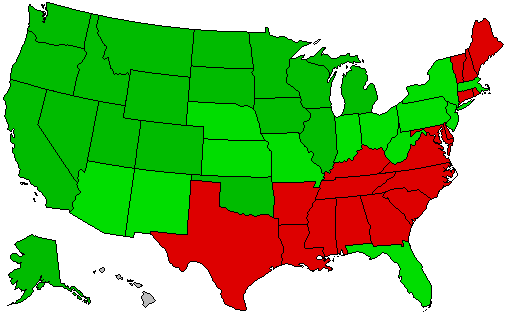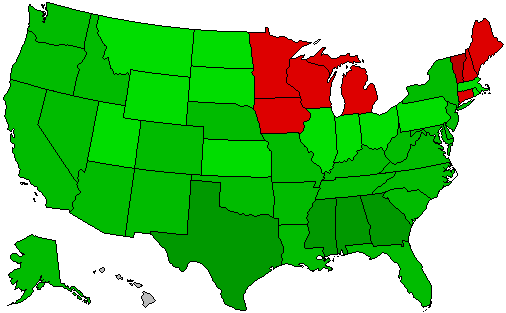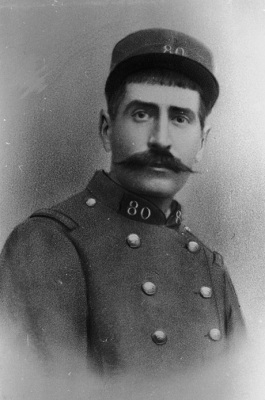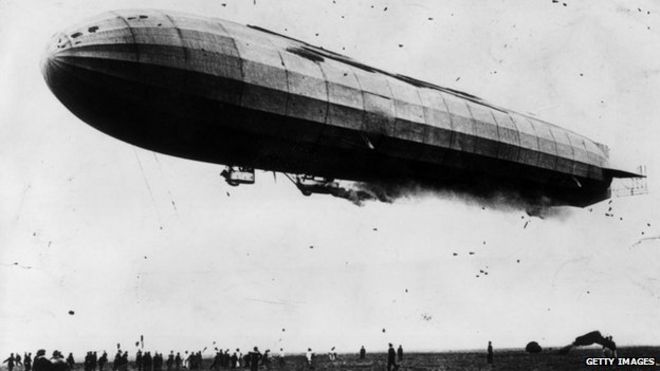You are using an out of date browser. It may not display this or other websites correctly.
You should upgrade or use an alternative browser.
You should upgrade or use an alternative browser.
America's Silver Era, The Story of William Jennings Bryan
- Thread starter CELTICEMPIRE
- Start date
No argument here.Always nice to see a timeline where the Electoral College gets abolished.
Questions 5 and 6
Shall the Constitution be amended as to allow for a runoff election between the two presidential candidates with the most votes in the case that no candidate receives a majority of votes cast?
Yes: 17,388,357 votes (54.49%)
No: 14,522,740 votes (45.51%)
Shall the 1929 Tariff Act be repealed?
Yes: 19,278,024 votes (59.60%)
No: 13,067,654 votes (40.40%)
kernals12
Banned
Ranked choice voting seems a much simpler way to accomplish the first one without the cost of 2 elections.
Shall the Constitution be amended as to allow for a runoff election between the two presidential candidates with the most votes in the case that no candidate receives a majority of votes cast?
Yes: 17,388,357 votes (54.49%)
No: 14,522,740 votes (45.51%)

Shall the 1929 Tariff Act be repealed?
Yes: 19,278,024 votes (59.60%)
No: 13,067,654 votes (40.40%)
Ranked choice voting seems a much simpler way to accomplish the first one without the cost of 2 elections.
That might give third parties too much power, though.
kernals12
Banned
wouldn't this runoff system have the same effect? Look at the elections in FranceThat might give third parties too much power, though.
wouldn't this runoff system have the same effect? Look at the elections in France
Certainly, however, the runoff election proposal is seen as a way to stop the Socialists, since it would be almost impossible for them to win in an election where they only faced one major party. Socialism is more popular than OTL, but America is still at a point where almost any Republican or Democrat would win a nationwide election against the most moderate Socialist. If 1932 had come down to Bryan and Haywood, Bryan would have won every state. If it had come down to Hanly and Haywood, Hanly would have won everything but Oklahoma, Nevada, and maybe another small state or two.
I like how socialism is more popular in the farming states than in the industrial Midwest in this scenario. While we're on the subject, what is Norman Thomas up to?
I like how socialism is more popular in the farming states than in the industrial Midwest in this scenario. While we're on the subject, what is Norman Thomas up to?
Norman Thomas is alive and well and will be featured in an upcoming chapter.
Spain? In North Africa or in the Caribbean?Next chapter is about war! I'll let y'all guess who's fighting.
Spain? In North Africa or in the Caribbean?
That question will be answered later today (hopefully).
Chapter LIX, Round Two
It is easy to forget the reasons why the average Frenchman in the 1930s hated Germany. Today the two nations generally have good relations. France had suffered two humiliating defeats against Germany, the first in the Franco-Prussian War and the second in the Great War. In the years following the latter, there was no shortage of anti-German propaganda in France, especially in film. Germany was portrayed as a nation devoid of any common decency, and German soldiers would have been compared to demons, had France not become an officially atheist state. Tensions between the two nations would eventually come to a head in the small country of Belgium.
-Excerpt from A History of anti-German Sentiment, Sigmund Althaus, Vienna Publishing House, 2009.
The French government funded organizations around the world to undermine various governments. One such group was the Belgian Freedom Movement, which sought to overthrow the Belgian monarchy and remove German troops from Belgium. During the late ‘20s and early ‘30s, the group launched dozens of terrorist attacks on Belgian government officials and German citizens in the country. French involvement was widely suspected, and it was confirmed without any doubt in 1932 when French statesman Louis Barthas defected to Brazil while ostensibly on a diplomatic mission. Barthas, himself a socialist, spoke on the increasing authoritarianism in France and eventually settled in New Orleans. International opinion, which was already turning against France, was now doing so more quickly.

(Louis Barthas during the Great War)
German leadership was increasingly convinced that France must be taught a lesson. The new German Chancellor, Wilhelm Groener, believed that this lesson must be taught by the German Army. In 1935, he spoke before the Reichstag condemning France as the “greatest threat to world peace at the present time.” In January 1936, there was a massive wave of terror attacks against Germans in not only Belgium, but also in Poland, Lithuania, and Finland. On February 10, the Reichstag voted to declare war on France. The next day, Austria-Hungary, Denmark, Belgium, Poland, and Lithuania declared war on France while Spain declared war on Germany. On the 12th the Kingdom of Spain officially entered the war. Argentina declared war on Germany on the 18th. Russia mobilized its troops, but ultimately decided to not join the war. The possibility of Russian involvement did force Germany to keep a significant number of soldiers in Poland and Lithuania that could have been used against France, however.

(Wilhelm Groener)
Kaiser Wilhelm, Chancellor Groener, the German military, and the German people were confident that the war would be a swift German victory. Even though France was rapidly catching up, Germany still had the largest army in Europe. France only had a slight advantage when it came to the war on water. But this didn’t tell the whole story. French troops were equipped with more modern weapons and were more prepared for war. On March 3, German and other allied troops attacked the weaker points in the French defenses on the border with Belgium. On the 17th, after taking high losses, the Germans and their allies broke through. The fighting was now mobile. The strategy now would be to rush towards Paris. On the 22nd, German, Austrian, Hungarian, and Polish cavalry were massacred by French infantry. After this battle, cavalry was rarely used again in European warfare.
The incident involving horsemen mowed down by machine guns has been overplayed in years following the war. But it does align with the reality that the French Army was technologically superior to the German Army, which had hardly updated its weapons since the end of the Great War. The Germans were gaining ground, but their casualties were much higher than that of the French. Then, in April, over 300,000 German troops were cut off and surrounded in Northern France. The German advance was stopped and France began to push back. In April and May, French and Spanish troops removed all enemy forces from France and advanced into Belgium. They claimed to be liberators and many Belgian soldiers defected.

(Germany underestimated the French soldier)
The war in the skies was going particularly poorly for Germany. France had spent more money on aircraft before the war and it showed. Germany’s large Zeppelin fleet became easy targets for the more modern French planes. By June France was bombing German industrial areas. On June 1, French and Spanish forces laid siege to Brussels. To the South, French troops launched an offensive into Alsace-Lorraine, a place most people in France believed to be rightfully part of their own country. The French advance was slow and the fighting was costly for both sides. The Belgian government fled Brussels and went into exile in Hamburg on the 15th and the city fell on the 18th. By mid-July Liege had fallen and Germany only controlled the Eastern edge of the country. In August Germany launched a counterattack, pushing into Southeastern Belgium. On August 4, Bastogne was captured and Arlon was taken on the 8th.

(German Zeppelins were much less effective in this war)
French air superiority meant that the German offensive was vulnerable from the very beginning. Yet the Germans continued. A second force comprised mainly of the remnants of the Belgian Army attempted to retake Liege. The original offensive forces were soon aware that they could not advance much further and begun to dig in, convinced that a Great War-style defensive strategy was needed. But things had changed over the last two decades. Improved motor-guns and bomber planes meant that the defender didn’t have nearly the same advantage as in the past. As the German soldiers were settling into their trenches, they were mercilessly attacked from the air. On the 22nd, French ground troops attacked and overran German positions. The Germans were pushed out of Belgium back into Germany on September 5. That same day, French planes conducted a bombing raid on Berlin, demoralizing the city’s inhabitants.
While Spain sent part of its army to help France, it was mainly focused on destroying the old Spanish government. Spanish and French ships attacked the Royal Spanish Navy in the Canary Islands. The Imperial German Navy sent ships to help the Kingdom of Spain. On July 3, 2 German cruisers and other smaller vessels were sent to the bottom of the sea at the battle of La Gomera. During the next few months, most of the Canary Islands would fall to French and Spanish marines. The French Navy also fought with the Kingdom of Spain in the Caribbean. Argentina was to provide soldiers for an invasion of Puerto Rico to end the Spanish Monarchy once and for all. The French Navy effectively cut Germany off from her colonies in Africa, but was unable to fully blockade the Germany proper the same way Britain was able to do 20 years earlier. French and German Navies were both weak in the Pacific and thus neither side gained a clear advantage in that theater of the war.
Germany was bearing almost all of the costs of the war. Its allies were not providing as much support as was anticipated. Poland and Lithuania had declared war on France but the people in both countries had no desire to fight. Germany also needed to station troops there in case Russia decided to attack. Denmark was helping in every way it could, but its small size meant that it would only play a minor role in the war. Austria-Hungary was the biggest disappointment for Germany. Early on in the war, Franz Ferdinand made sure that there would be no conscription. He feared that conscription would only provide an opportunity for unrest within his empire he was working so hard to preserve. He didn’t even request the help of his puppet states, Serbia and Ukraine. Austria-Hungary kept a large portion of its army at home to prevent insurrection and also stationed troops in Ukraine to counter Slavic nationalist revolutionaries. Austria-Hungary would only send a token force to help Germany during the early phases of the war.
-Excerpt from A History of anti-German Sentiment, Sigmund Althaus, Vienna Publishing House, 2009.
The French government funded organizations around the world to undermine various governments. One such group was the Belgian Freedom Movement, which sought to overthrow the Belgian monarchy and remove German troops from Belgium. During the late ‘20s and early ‘30s, the group launched dozens of terrorist attacks on Belgian government officials and German citizens in the country. French involvement was widely suspected, and it was confirmed without any doubt in 1932 when French statesman Louis Barthas defected to Brazil while ostensibly on a diplomatic mission. Barthas, himself a socialist, spoke on the increasing authoritarianism in France and eventually settled in New Orleans. International opinion, which was already turning against France, was now doing so more quickly.

(Louis Barthas during the Great War)
German leadership was increasingly convinced that France must be taught a lesson. The new German Chancellor, Wilhelm Groener, believed that this lesson must be taught by the German Army. In 1935, he spoke before the Reichstag condemning France as the “greatest threat to world peace at the present time.” In January 1936, there was a massive wave of terror attacks against Germans in not only Belgium, but also in Poland, Lithuania, and Finland. On February 10, the Reichstag voted to declare war on France. The next day, Austria-Hungary, Denmark, Belgium, Poland, and Lithuania declared war on France while Spain declared war on Germany. On the 12th the Kingdom of Spain officially entered the war. Argentina declared war on Germany on the 18th. Russia mobilized its troops, but ultimately decided to not join the war. The possibility of Russian involvement did force Germany to keep a significant number of soldiers in Poland and Lithuania that could have been used against France, however.

(Wilhelm Groener)
Kaiser Wilhelm, Chancellor Groener, the German military, and the German people were confident that the war would be a swift German victory. Even though France was rapidly catching up, Germany still had the largest army in Europe. France only had a slight advantage when it came to the war on water. But this didn’t tell the whole story. French troops were equipped with more modern weapons and were more prepared for war. On March 3, German and other allied troops attacked the weaker points in the French defenses on the border with Belgium. On the 17th, after taking high losses, the Germans and their allies broke through. The fighting was now mobile. The strategy now would be to rush towards Paris. On the 22nd, German, Austrian, Hungarian, and Polish cavalry were massacred by French infantry. After this battle, cavalry was rarely used again in European warfare.
The incident involving horsemen mowed down by machine guns has been overplayed in years following the war. But it does align with the reality that the French Army was technologically superior to the German Army, which had hardly updated its weapons since the end of the Great War. The Germans were gaining ground, but their casualties were much higher than that of the French. Then, in April, over 300,000 German troops were cut off and surrounded in Northern France. The German advance was stopped and France began to push back. In April and May, French and Spanish troops removed all enemy forces from France and advanced into Belgium. They claimed to be liberators and many Belgian soldiers defected.

(Germany underestimated the French soldier)
The war in the skies was going particularly poorly for Germany. France had spent more money on aircraft before the war and it showed. Germany’s large Zeppelin fleet became easy targets for the more modern French planes. By June France was bombing German industrial areas. On June 1, French and Spanish forces laid siege to Brussels. To the South, French troops launched an offensive into Alsace-Lorraine, a place most people in France believed to be rightfully part of their own country. The French advance was slow and the fighting was costly for both sides. The Belgian government fled Brussels and went into exile in Hamburg on the 15th and the city fell on the 18th. By mid-July Liege had fallen and Germany only controlled the Eastern edge of the country. In August Germany launched a counterattack, pushing into Southeastern Belgium. On August 4, Bastogne was captured and Arlon was taken on the 8th.

(German Zeppelins were much less effective in this war)
French air superiority meant that the German offensive was vulnerable from the very beginning. Yet the Germans continued. A second force comprised mainly of the remnants of the Belgian Army attempted to retake Liege. The original offensive forces were soon aware that they could not advance much further and begun to dig in, convinced that a Great War-style defensive strategy was needed. But things had changed over the last two decades. Improved motor-guns and bomber planes meant that the defender didn’t have nearly the same advantage as in the past. As the German soldiers were settling into their trenches, they were mercilessly attacked from the air. On the 22nd, French ground troops attacked and overran German positions. The Germans were pushed out of Belgium back into Germany on September 5. That same day, French planes conducted a bombing raid on Berlin, demoralizing the city’s inhabitants.
While Spain sent part of its army to help France, it was mainly focused on destroying the old Spanish government. Spanish and French ships attacked the Royal Spanish Navy in the Canary Islands. The Imperial German Navy sent ships to help the Kingdom of Spain. On July 3, 2 German cruisers and other smaller vessels were sent to the bottom of the sea at the battle of La Gomera. During the next few months, most of the Canary Islands would fall to French and Spanish marines. The French Navy also fought with the Kingdom of Spain in the Caribbean. Argentina was to provide soldiers for an invasion of Puerto Rico to end the Spanish Monarchy once and for all. The French Navy effectively cut Germany off from her colonies in Africa, but was unable to fully blockade the Germany proper the same way Britain was able to do 20 years earlier. French and German Navies were both weak in the Pacific and thus neither side gained a clear advantage in that theater of the war.
Germany was bearing almost all of the costs of the war. Its allies were not providing as much support as was anticipated. Poland and Lithuania had declared war on France but the people in both countries had no desire to fight. Germany also needed to station troops there in case Russia decided to attack. Denmark was helping in every way it could, but its small size meant that it would only play a minor role in the war. Austria-Hungary was the biggest disappointment for Germany. Early on in the war, Franz Ferdinand made sure that there would be no conscription. He feared that conscription would only provide an opportunity for unrest within his empire he was working so hard to preserve. He didn’t even request the help of his puppet states, Serbia and Ukraine. Austria-Hungary kept a large portion of its army at home to prevent insurrection and also stationed troops in Ukraine to counter Slavic nationalist revolutionaries. Austria-Hungary would only send a token force to help Germany during the early phases of the war.
Should have realized you meant France and Germany. Who else, really?
And have to say, I am not optimistic on Germany's chances at this point.
And have to say, I am not optimistic on Germany's chances at this point.
President Bryan's reaction would be interesting to see. On the one hand, it is the "who-knows-which-number" war between Europeans powers and, like his brother, he believes that what lies in Europe stays in Europe, but, on the other hand, one of the sides of the war is formed of countries that are ideologically speaking not only fundamentally different, but opposed to the US system and wishing to destroy it. Not only that, but they are exporting their ideology in the Caribbean, a few hundred miles from the US shore, in the "forbidden zone for Europe" of the Monroe doctrine. Not lastly, he faces reelection next year and he can't expect to win a certain combination of states, he must win the majority of the Americans votes and what will their reaction to the war be?
Also, is Britain neutral?
Also, is Britain neutral?
Should have realized you meant France and Germany. Who else, really?
And have to say, I am not optimistic on Germany's chances at this point.
They definitely should have prepared more.
President Bryan's reaction would be interesting to see. On the one hand, it is the "who-knows-which-number" war between Europeans powers and, like his brother, he believes that what lies in Europe stays in Europe, but, on the other hand, one of the sides of the war is formed of countries that are ideologically speaking not only fundamentally different, but opposed to the US system and wishing to destroy it. Not only that, but they are exporting their ideology in the Caribbean, a few hundred miles from the US shore, in the "forbidden zone for Europe" of the Monroe doctrine. Not lastly, he faces reelection next year and he can't expect to win a certain combination of states, he must win the majority of the Americans votes and what will their reaction to the war be?
Also, is Britain neutral?
Most of your post will be covered in the next chapter.
Britain is currently neutral. Public opinion is divided and some are happy to see France hurt Germany.
I have doubts that France can defeat Germany without much more assistance, but the Germans did something very ill advised. They need to get the British on their side
Hey, @CELTICEMPIRE, in one of your future updates I would like to read about a specific German. Last time I checked, some 18 years before, he was a Corporal in the Imperial German Army. His name is Adolf Hitler.
Hey, @CELTICEMPIRE, in one of your future updates I would like to read about a specific German. Last time I checked, some 18 years before, he was a Corporal in the Imperial German Army. His name is Adolf Hitler.
In this TL he's actually still Austrian. He fought against Russia and is now a writer in Vienna. He will appear soon.
Share: